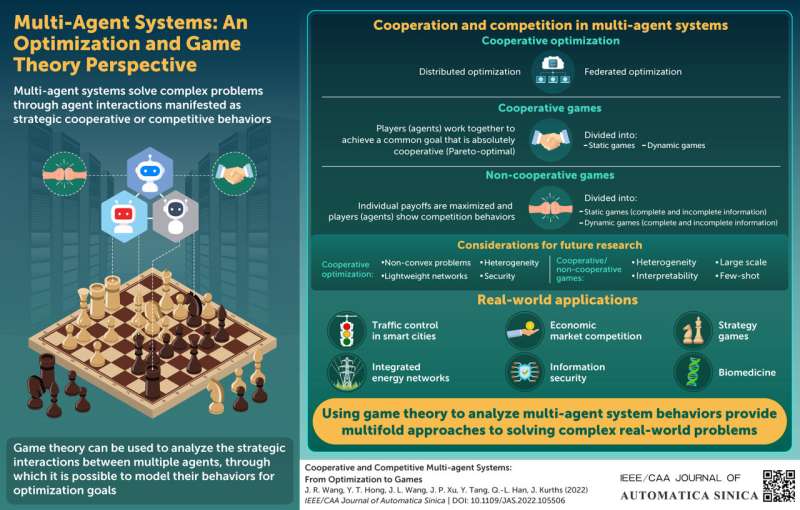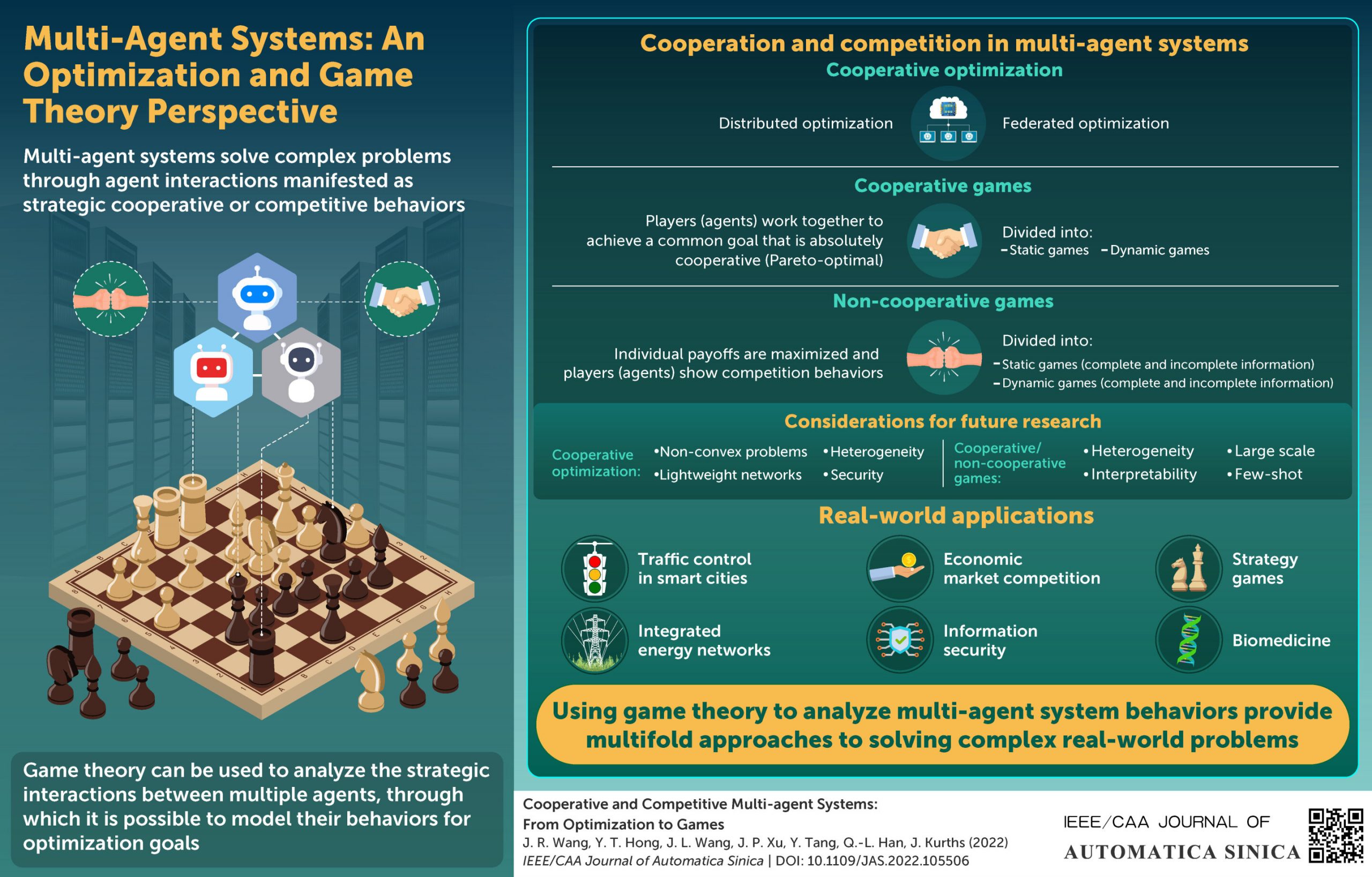
New study describes multi-agent systems for optimization and decision-making through games. Credit: Chinese Association of Automation
In artificial intelligence, multi-agent systems can be thought of as a society of individuals (agents) that interact by exchanging knowledge and by negotiating with each other to achieve an individual/global goal. In real life, multi-agent systems are used in many diverse fields like resource management; information security; manufacturing planning, scheduling, and control; monitoring, diagnosis, and control; ecommerce; biomedicine; and virtual enterprise. Given their immense usefulness, researchers are constantly trying to find new ways to use these systems in real-world settings.
Against this background, a group of researchers led by Prof. Yang Tang, from East China University of Science and Technology, Shanghai, China, together with Prof. Qing-Long Han, a member of the Academia Europaea and IEEE Fellow from Swinburne University of Technology, Melbourne, Australia, and Prof. Jürgen Kurths, a member of the Academia Europaea from Potsdam Institute for Climate Impact Research, Potsdam, Germany, worked together to dig deep into issues related to multi-agent systems. They probed into the nature of cooperative/non-cooperative behaviors of multi-agent systems from optimization to games, as an approach to solving complex real-world problems. They published their findings in the May issue of IEEE/CAA Journal of Automatica Sinica.
“Multi-agent systems often involve multi-objective optimization with conflicting objectives, and each object is inevitably affected by uncertainty. Therefore, game theory can endow multi-agent systems with more solutions and provide a means of interdisciplinary integration, such as the integration of games and control, AI, mathematics, and other disciplines,” claim Prof. Tang and Prof. Kurths.
They considered game theory for a very important reason. To put it simply, games, especially turn-based strategy games, are everywhere around us. Games are specific to situations with interdependence and can be divided into cooperative games and non-cooperative games, or classified into static games and dynamic games, according to the behaviors and action sequence of agents. The researchers have integrated the two classifications for a more comprehensive view of complex real-world scenarios.
In their survey, the authors used game theory to create models of cooperative or competitive behaviors for individual or global optimization goals. The focus was on three aspects of cooperation and competition in multi-agent systems: cooperative optimization, cooperative games, and non-cooperative games. “For game-related problems, a non-cooperative game is formed when an agent’s goal may be different or completely opposite to that of other agents; conversely, a cooperative game is formed when an agent absolutely cooperates with other agents and consider common interests, Say Wang and Hong.
The survey tackles multiple angles: first, it focuses on distributed online optimization, federated optimization, and their applications in privacy protection. Then, by focusing on static and dynamic games with cooperative and competitive factors, respectively, the study bridges the transition from cooperative optimization to cooperative games in a novel way.
So where can these findings be used? The applications are multifold, according to the authors.
Using a particularly illustrative example, Prof. Han says that “in smart cities, these findings can be used to build an intelligent traffic decision-making system relying on urban big data. This means that the duration of traffic lights at intersections can be optimized, so that the traffic flow can be adjusted, the load of the road network can be balanced, and the utilization efficiency of road resources can be improved.”
The applications also range across other fields. In economics, market competition can be modeled as a game problem. In the field of information security, non-cooperative attack-defense games can be constructed to find the optimal defense strategy by identifying the intention of the interaction information and predicting the aggressive behavior. Even in drug development, cooperative games can be constructed to obtain the maximum utility of the macromolecular structure.
Study determines whether cultures play games that correspond to how cooperative they are
Jianrui Wang et al, Cooperative and Competitive Multi-Agent Systems: From Optimization to Games, IEEE/CAA Journal of Automatica Sinica (2022). DOI: 10.1109/JAS.2022.105506
Provided by Chinese Association of Automation
citation: New study describes multi-agent systems for optimization and decision-making through games (2022, May 10) retrieved 10 May 2022 from https://techxplore.com/news/2022-05-multi-agent-optimization-decision-making -games.html
This document is subject to copyright. Apart from any fair dealing for the purpose of private study or research, no part may be reproduced without the written permission. The content is provided for information purposes only.
